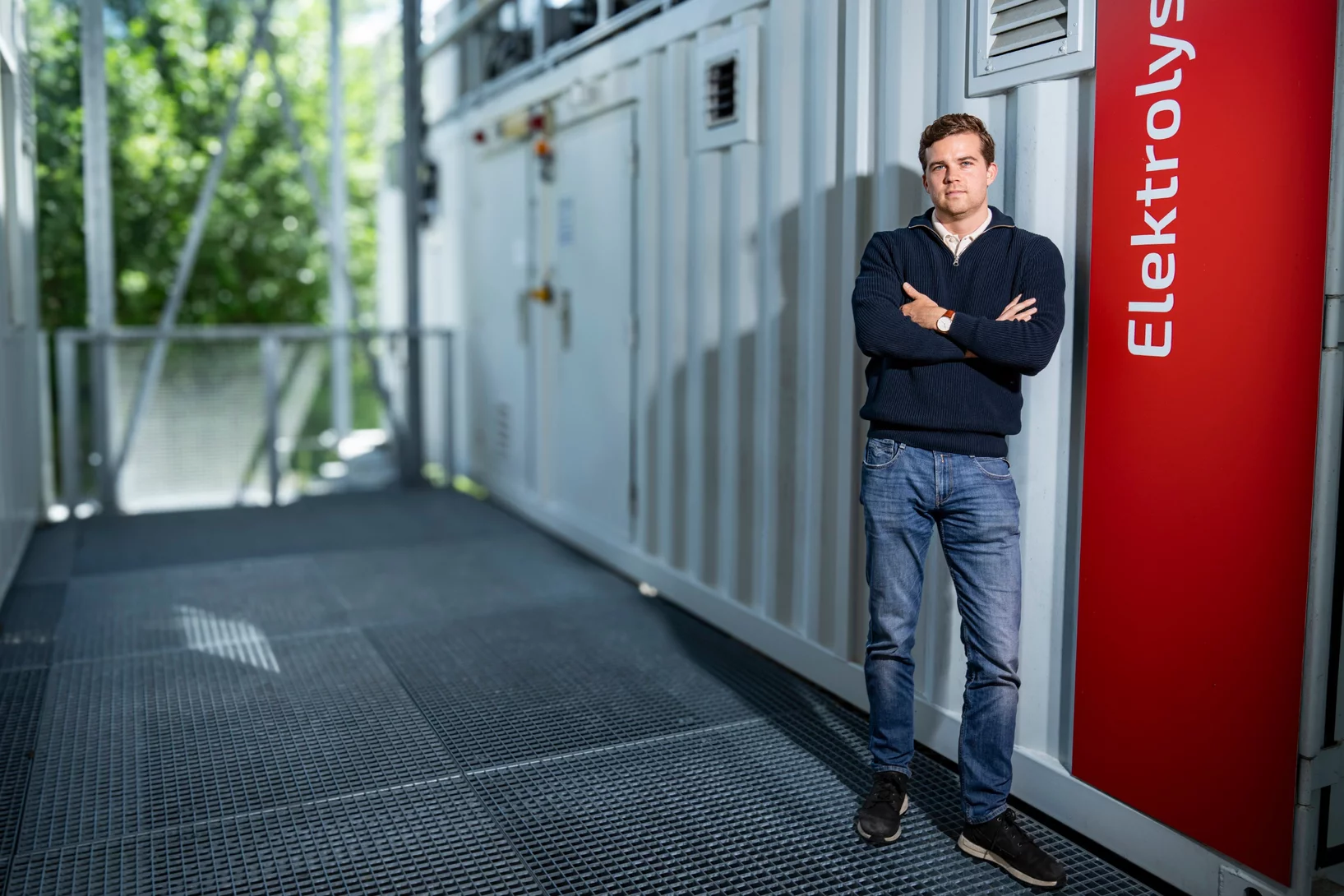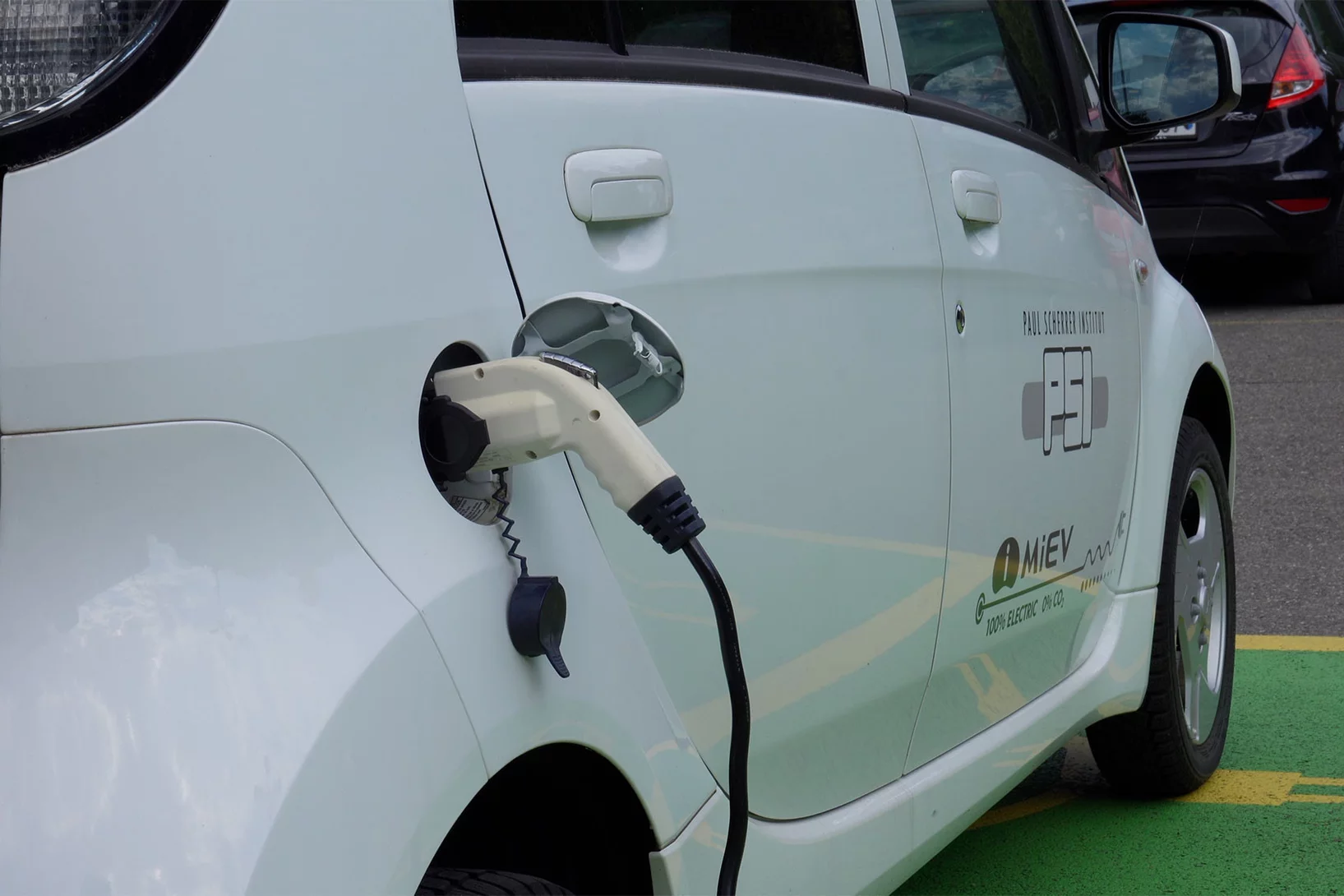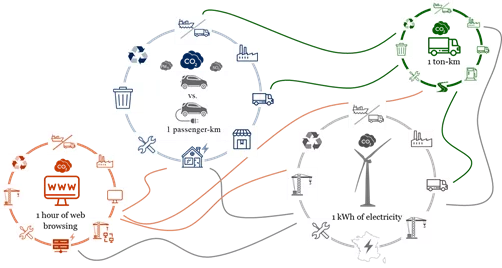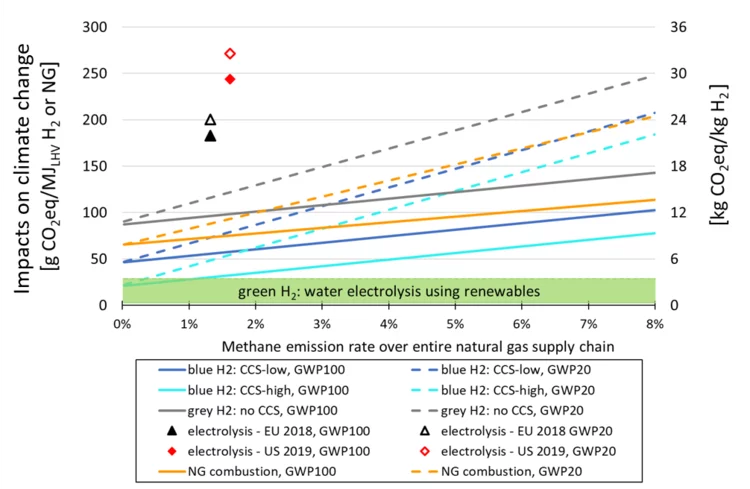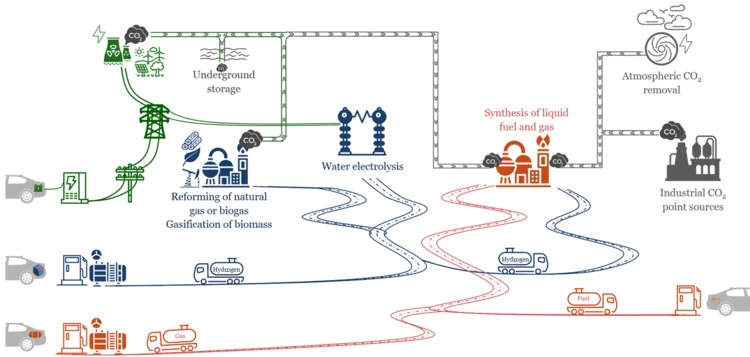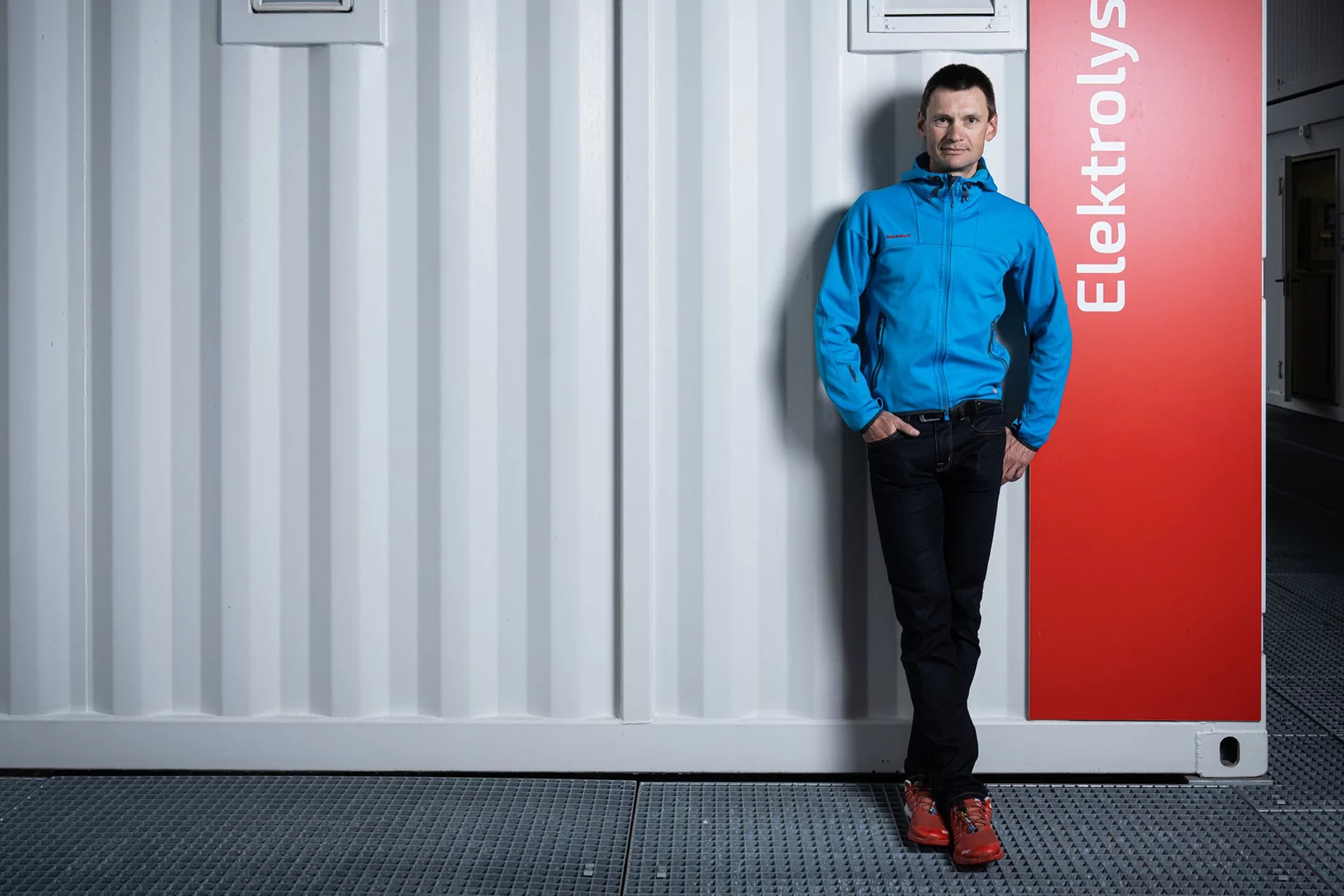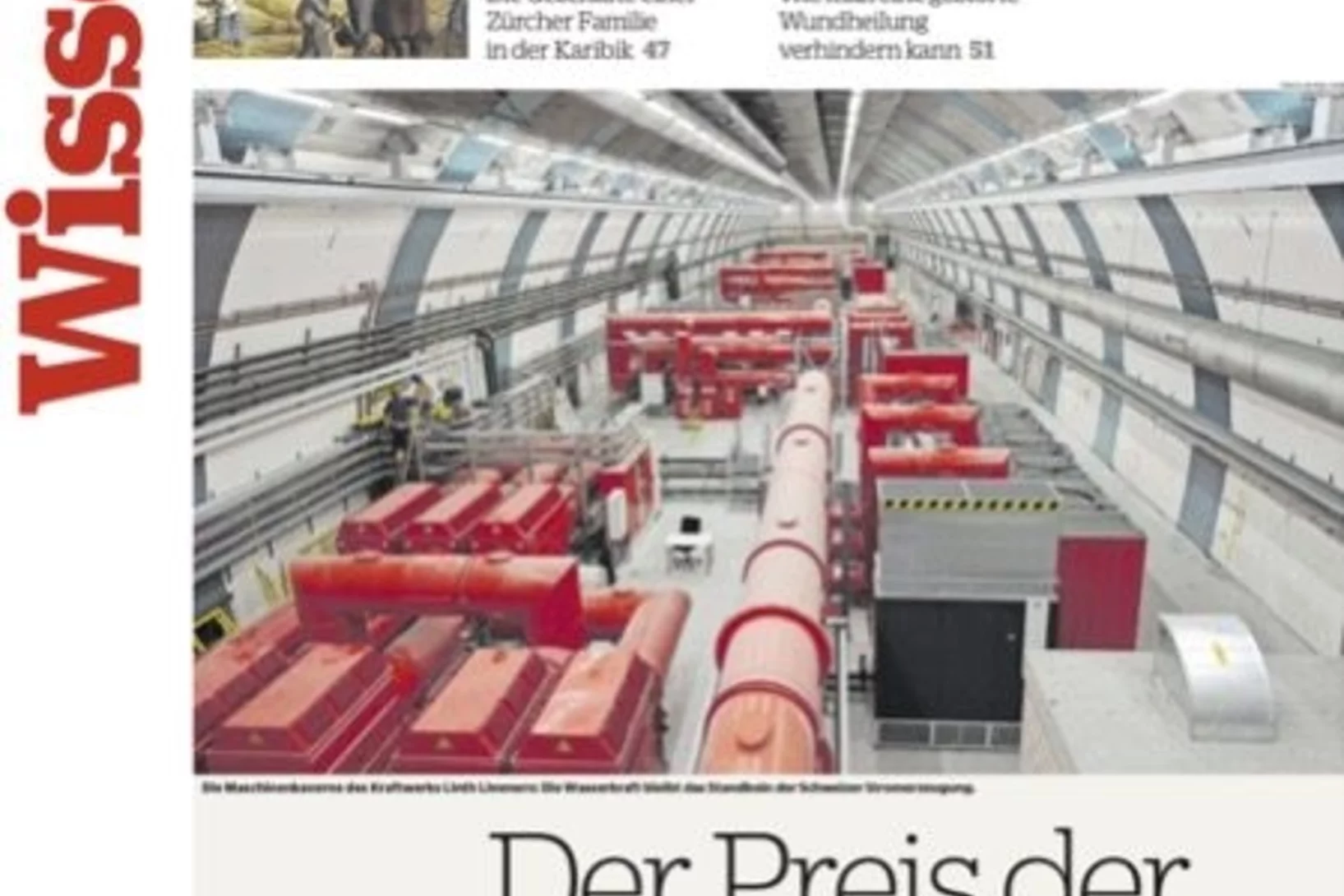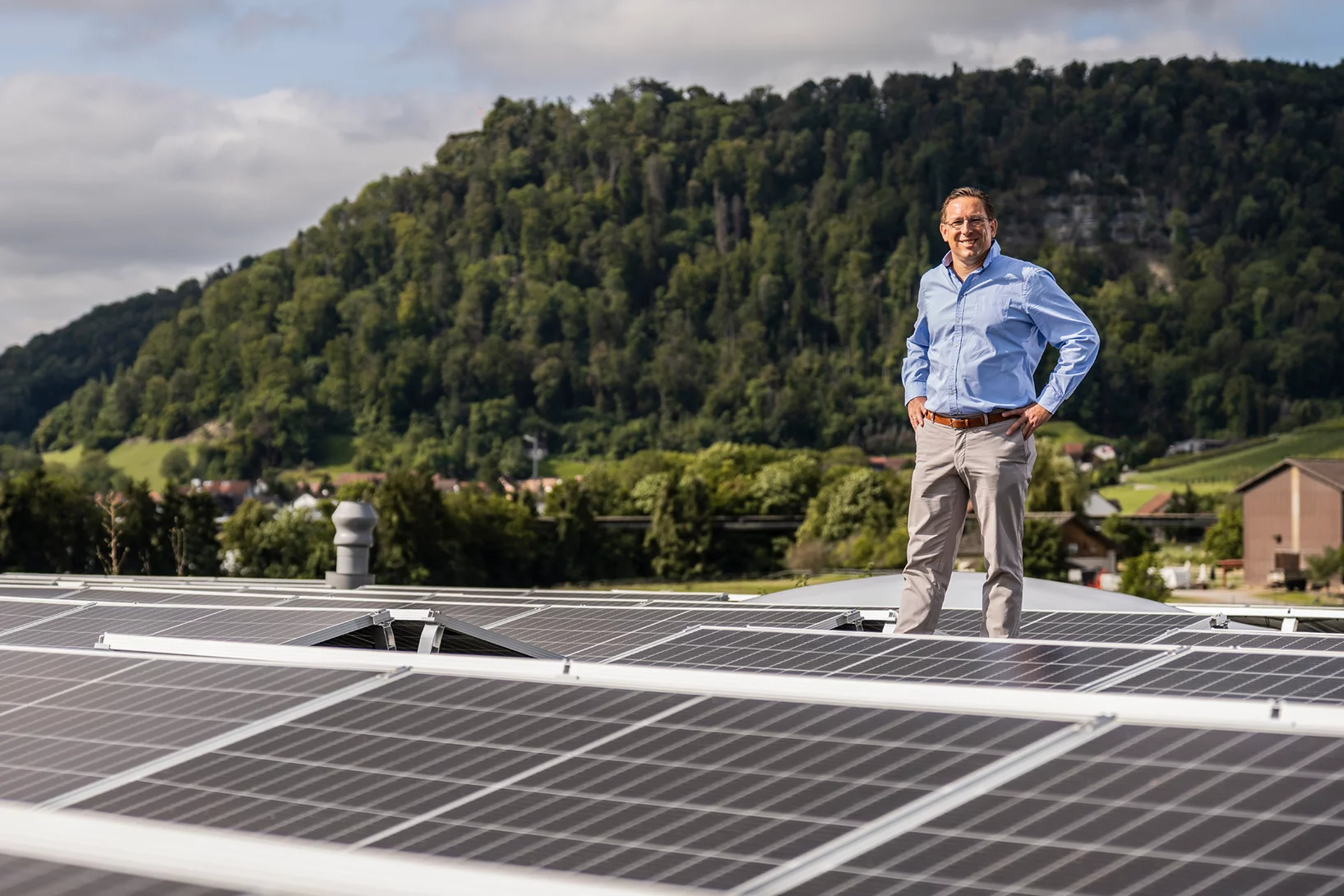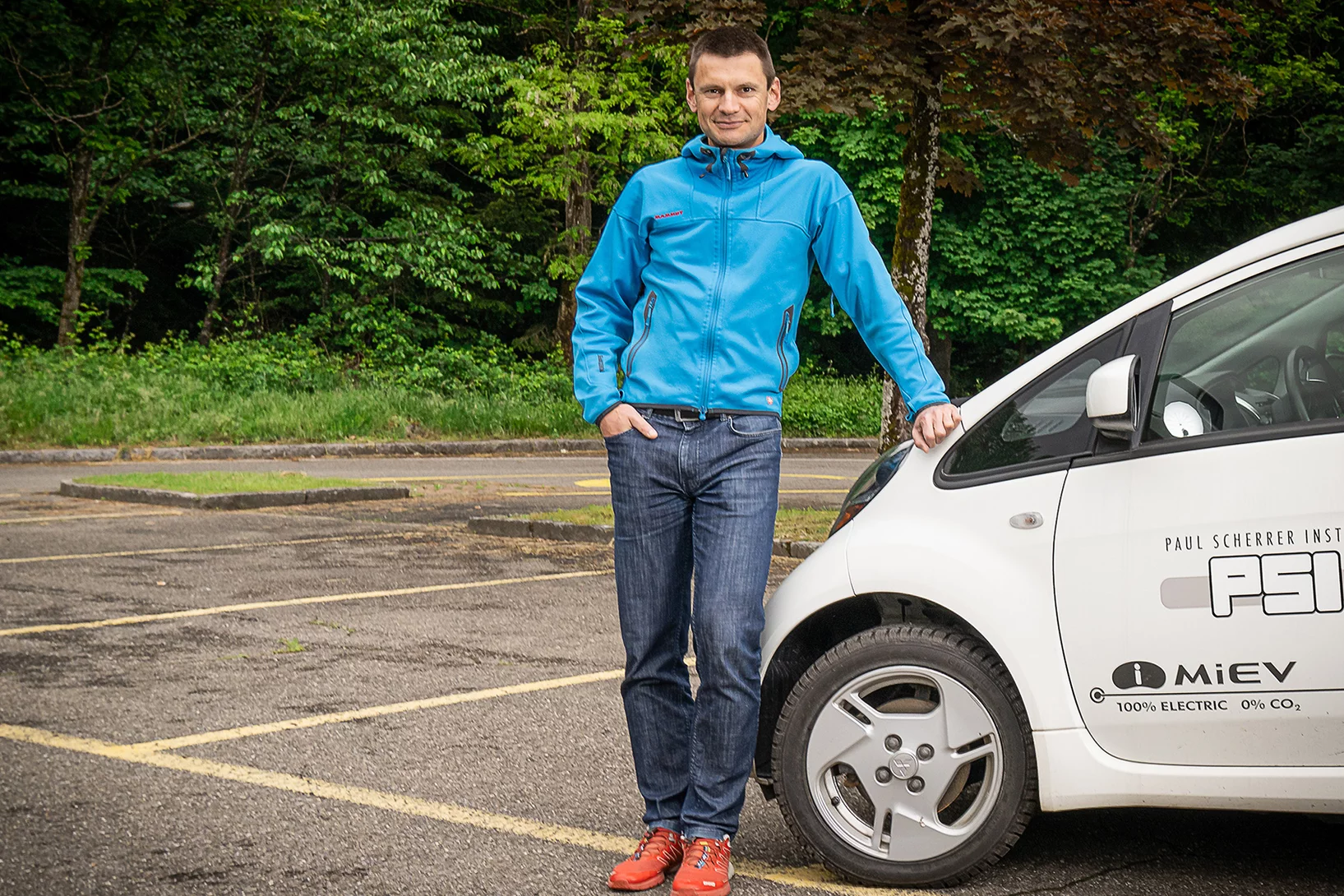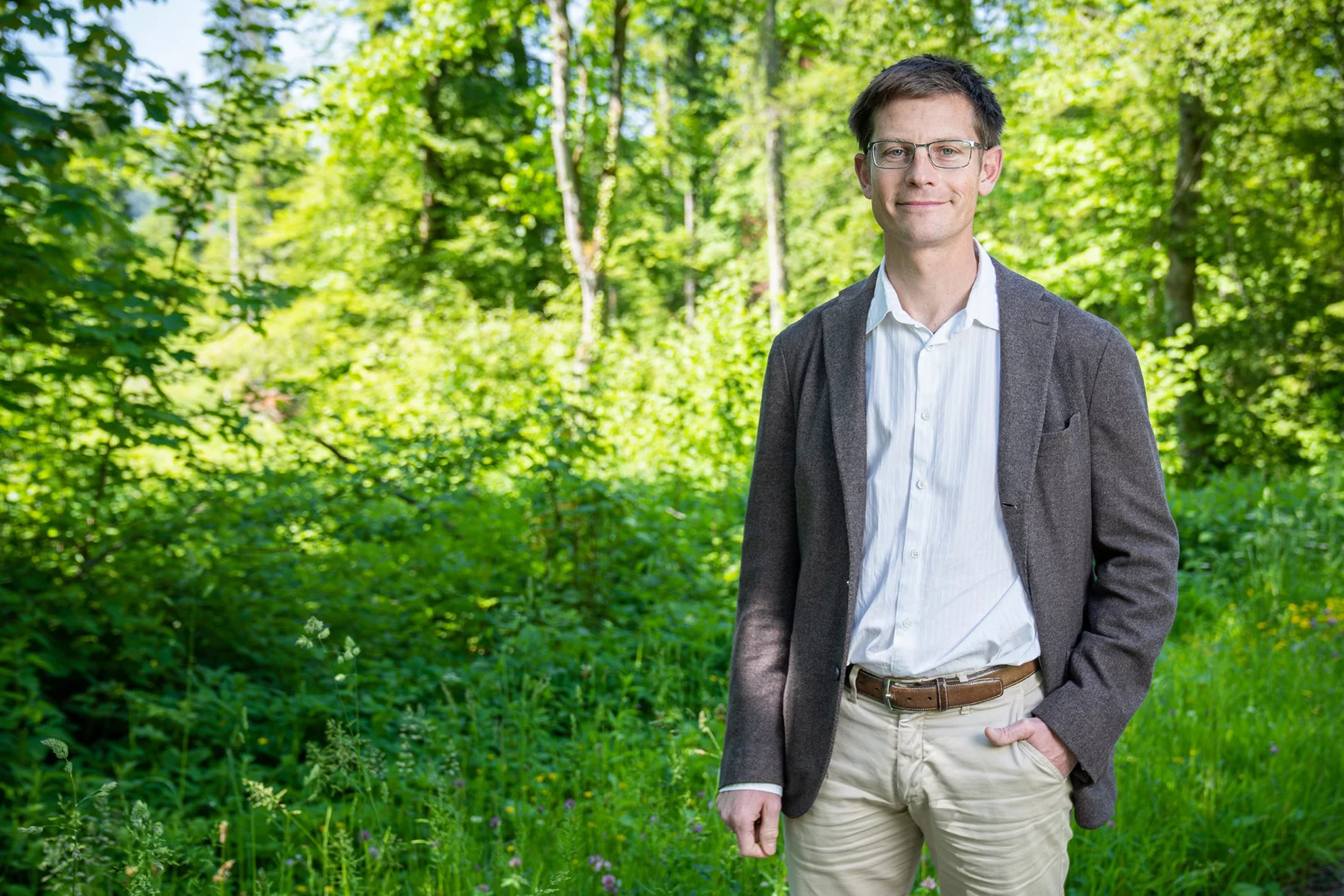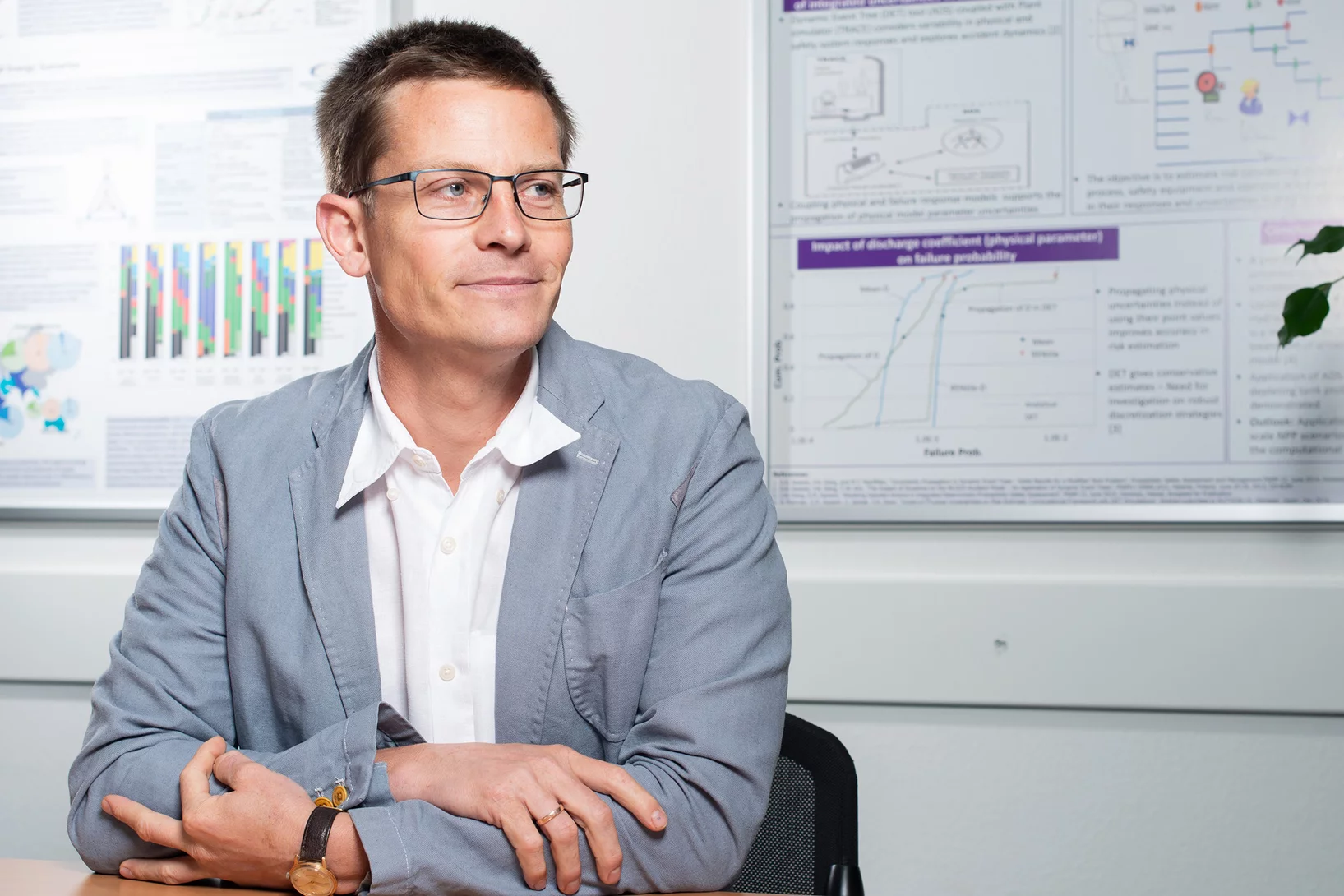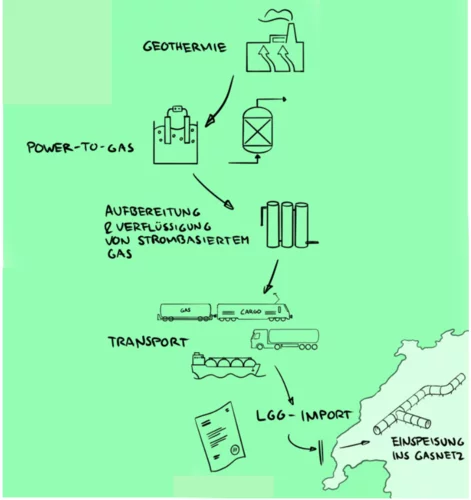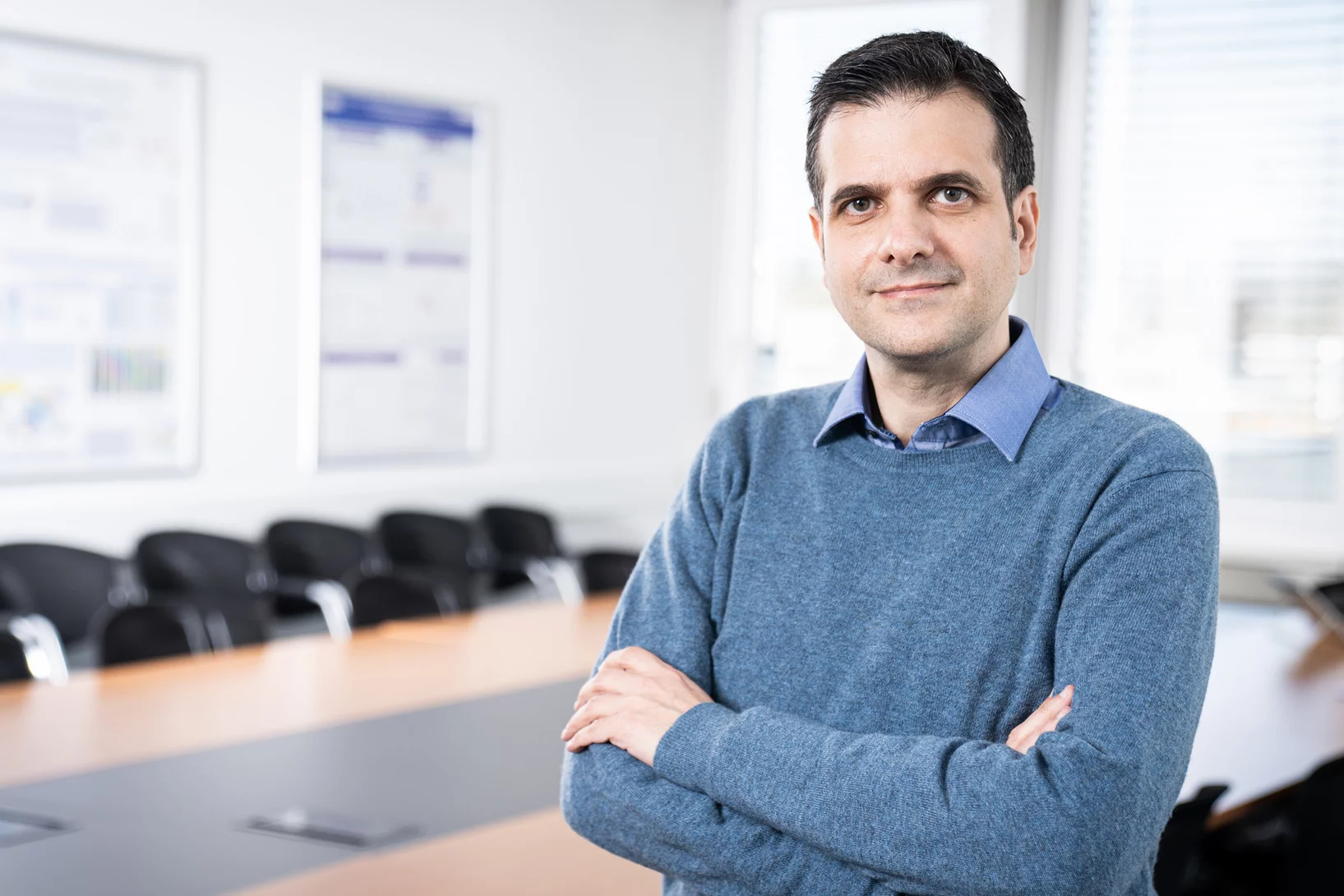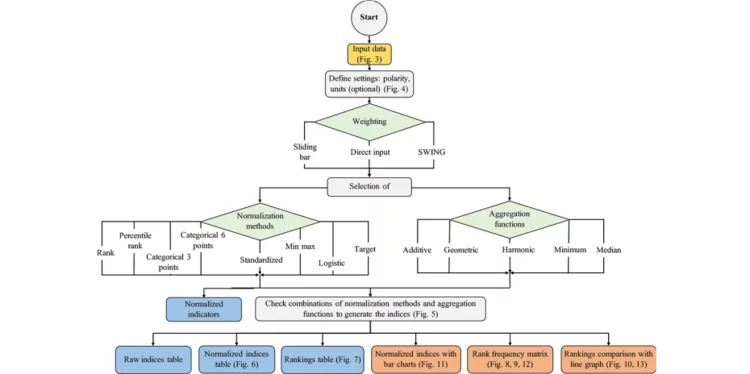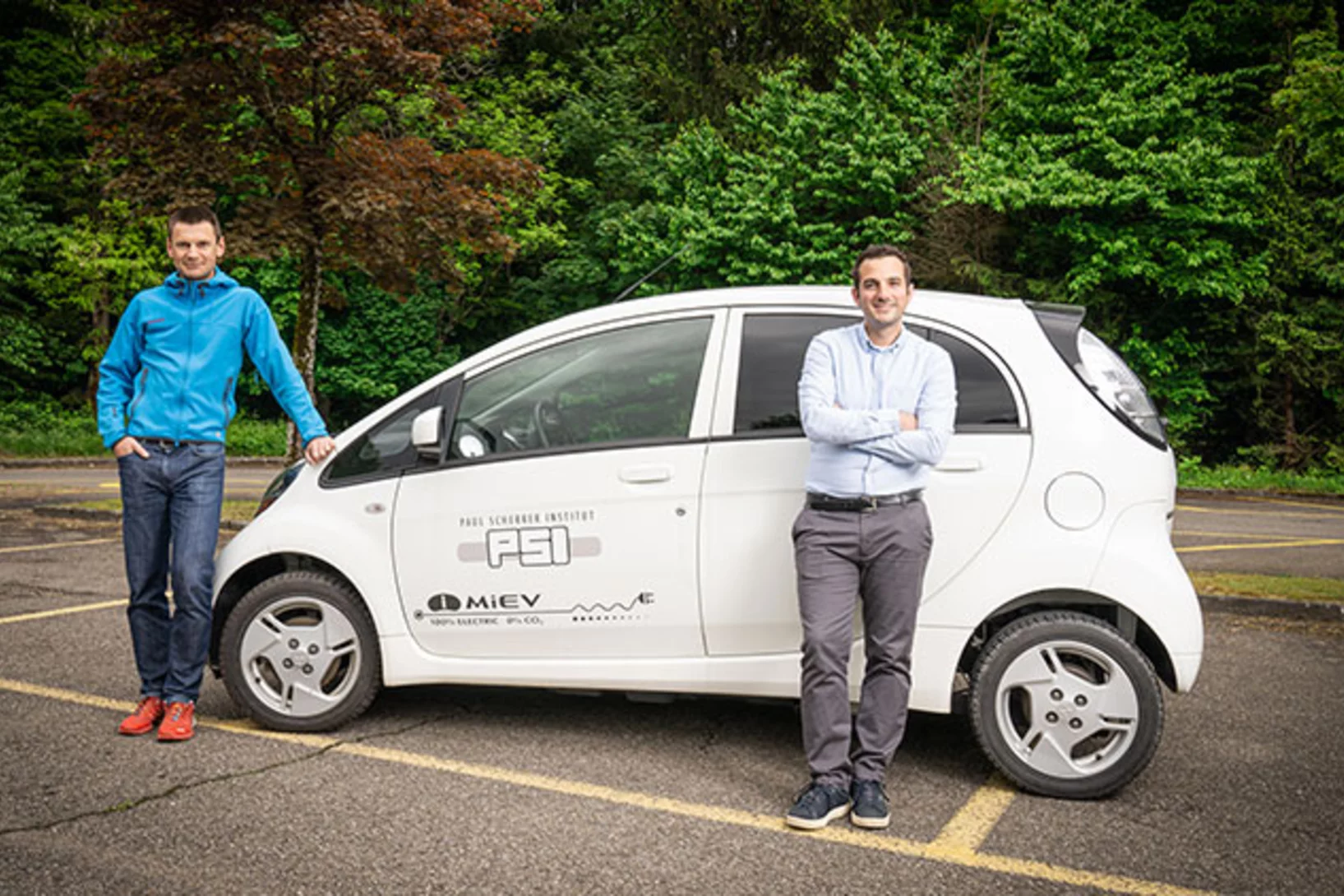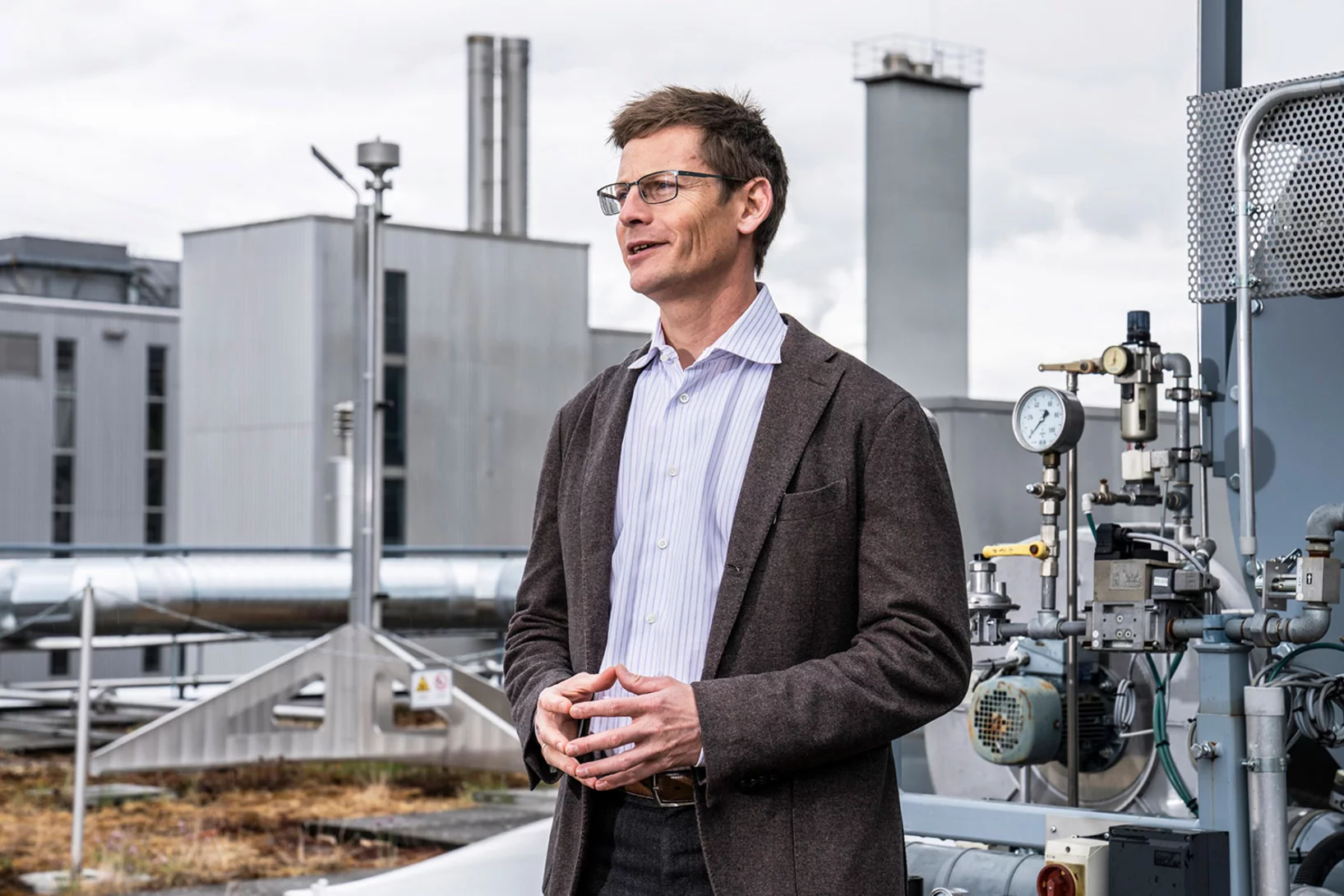Net zero: Taking raw materials into account
A new calculation model from PSI illustrates the complex interdependencies between technology, demand for critical raw materials, and environmental impacts on the road to climate neutrality.
“The biggest challenge is lacking public acceptance of wind turbines”
In an interview with ETH News, Russell McKenna, an expert in energy system analysis, explains where he sees the greatest need for action in order to further develop wind energy.
A complex promise
There’s more to climate-neutral aviation than just reducing emissions during flights. A PSI study analyses what is needed to achieve this long-term goal.
Fast as a plane, clean as a train
In a collaboration across Switzerland, researchers have evaluated the potential environmental impacts of so-called hyperloop systems.
Where should hydrogen be produced in the future?
Researchers at PSI have been looking into where the hydrogen for a future hydrogen economy should be produced and what impact this energy carrier will have on the environment.
Digitalisation: a blessing for the energy transformation
Researchers at PSI have calculated the influence of digitalisation on energy consumption.
How clean is hydrogen for the energy transition?
Hydrogen can play a crucial role in transitioning to a net-zero energy system – but it must be produced the right way.
How can cobalt be reduced in EV batteries?
The electrification of transport is increasing. This means, more batteries are needed. However, some of these batteries contain an extremely problematic raw material: cobalt. PSI is researching alternatives.
Climate-neutral air travel: Is it possible?
Above all, meeting this goal will require sustainable fuels and a reduction in air traffic.
4000 scenarios for a climate turnaround
Researchers at PSI and Columbia University are calculating in detail how climate change can be slowed down.
Latest Version of "Mobiltool" Released
How do you get from A to B in the most environmentally friendly way? This question can now be answered quite easily with the latest version of the "mobitool". Read the article to learn more.
Blue hydrogen can help protect the climate
An international group of researchers led by the Paul Scherrer Institute has carried out in-depth analyses of the climate impact of blue hydrogen. This is produced from natural gas, with the CO2 resulting from the process captured and permanently stored. The study concludes that blue hydrogen can play a positive role in the energy transition – under certain conditions.
E-fuels and electrification as complementary approaches to achieve climate target
Sustainable, synthetic fuels, so-called e-fuels, can help reduce CO₂ emissions. For their production, electricity from renewable sources is required in order to allow for a close to CO₂-neutral balance. The availability of electricity from renewable sources, which ensures the climate benefits of e-fuels, is currently still limited. “Especially in order to produce on a larger scale, a lot of renewable electricity is needed,” explains Christian Bauer, researcher at the Laboratory for Energy Systems Analysis (LEA) at PSI.
Blue hydrogen can help protect the climate
The key is to eliminate methane leaks.
«Price tags» of the Swiss energy transition
NZZ am Sonntag has picked up this highlight in its issue on March 7th, 2021: The highlight refers to the analysis performed in SCCER Joint Activity Scenarios and Modelling, where PSI-LEA performed the analysis of the energy transition pathways.
Where will the electricity come from in 2050?
Net-zero goal for CO2 emissions is technically achievable.
Effectively removing CO2 from the atmosphere
With careful planning, effective CO2 capture is technically possible.
“Without these technologies, we will hardly achieve our climate targets”
To achieve carbon neutrality, technologies need to be deployed which remove carbon dioxide from the atmosphere.
Improving the resilience of Switzerland’s energy supply
The SURE research project is up and running.
Final Report of the IMPEGA project
The final report of the IMPEGA project has been released!
SCCER Mobility White Paper
New SCCER Mobility white paper on "Pathways to a net zero CO2 Swiss mobility system" is now online!
Switzerland's energy transition
Can Switzerland, as planned, reduce its CO2 emissions to zero by 2050? What is needed to achieve this? What could it cost?
Seven years SCCER Mobility
Synthesis book reviews history, milestones and achievements of the center
Sustainability Assessment of Potential Areas for Deep Geothermal Energy Systems in Switzerland
In this study, scientists from the Paul Scherrer Institute (PSI) assessed the suitability of potential areas for Deep Geothermal Energy (DGE) systems in Switzerland with regard to their sustainability.
Atelier deliverable nr. D9.1 Draft released
Draft of the Deliverable nr. D9.1 on "Repository of Definitions of terms, key characteristics archetypes and a set of KPIS" for the H2020 Atelier project
A tool to build and assess indices
Researchers from the Future Resilient Systems programme present a multiple criteria decision analysis (MCDA) software that supports the dynamic shaping and evaluation of indices.
Life cycle assessment of cars – new web tool helps consumers and researchers
Decision support for car buyers: Researchers at the Paul Scherrer Institute have developed a web tool called the Carculator that can be used to compare the environmental performance of passenger cars in detail.
Long-term developments of energy pricing and consumption in industry
Researchers from the Paul Scherrer Institute PSI, on behalf of a research project funded by the Swiss Federal Office of Energy (SFOE), have studied how energy consumption by Swiss industry develops depending on energy prices. One result: Price increases for energy usually affect energy consumption only over the long term.
"Electric is already the right choice today"
An interview on automotive power systems with Christian Bauer, a scientist at PSI's Laboratory for Energy Systems Analysis who specialises in life cycle and sustainability analyses.
Make way for electric cars
Petrol, diesel, fuel cell or electric – which is the automobile of the future? A PSI study has examined the overall climate impact of various vehicle engines in use today and also projected it to the year 2040.




